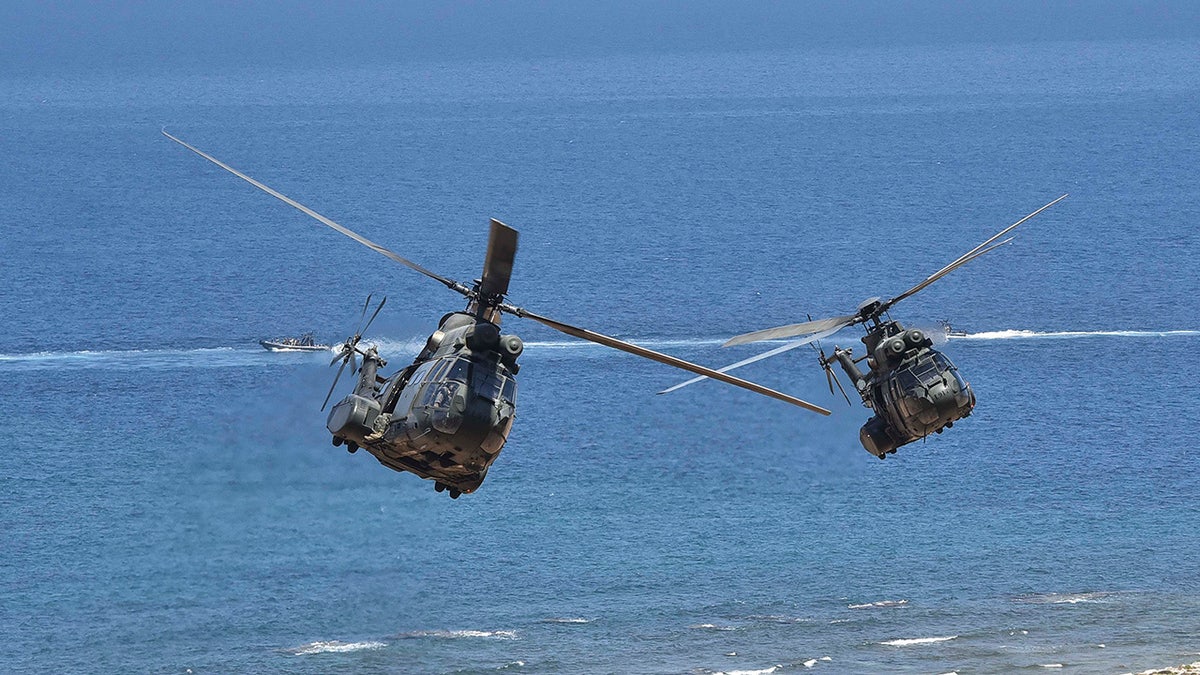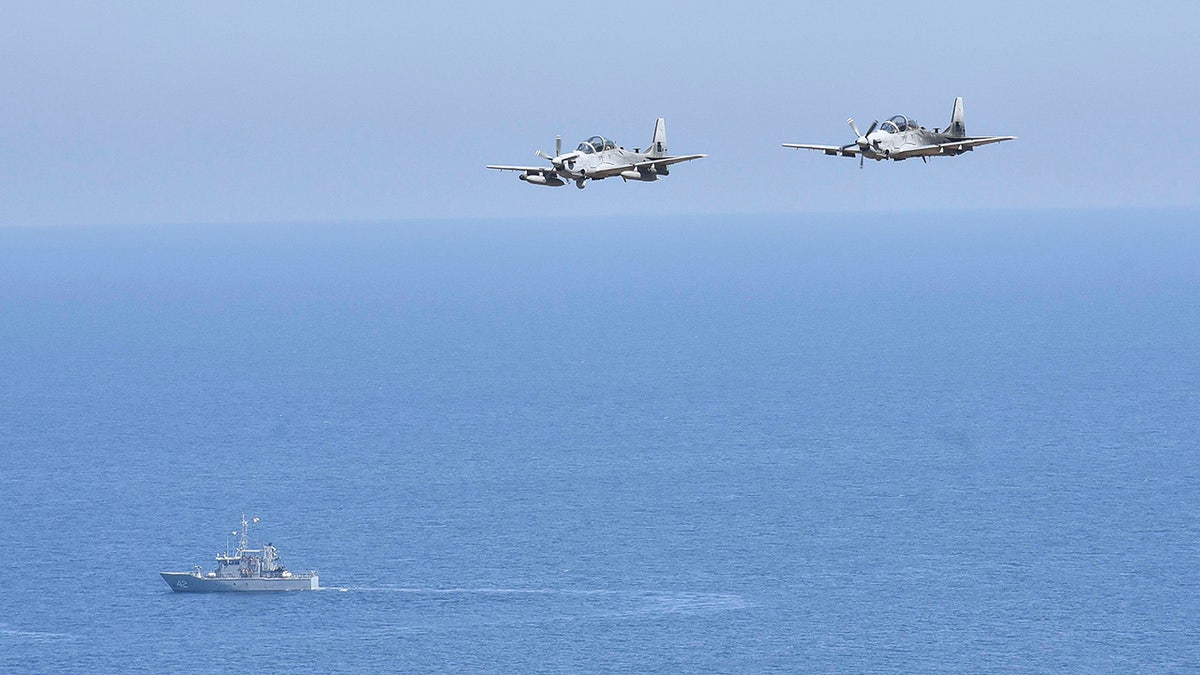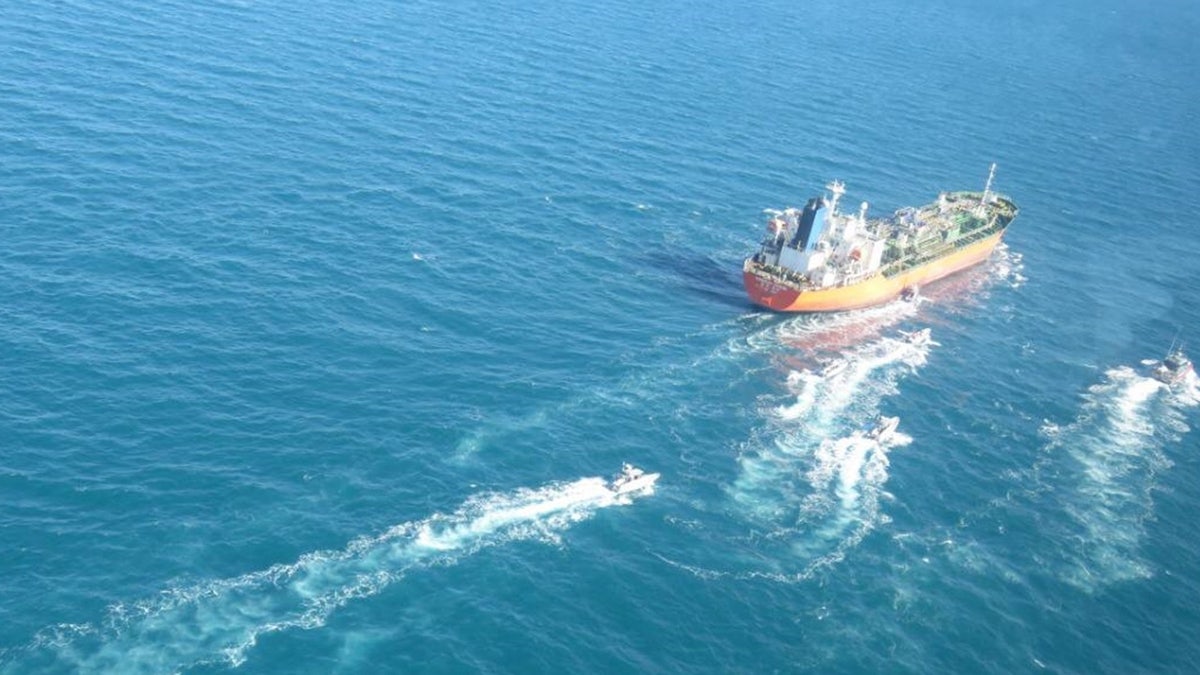Fox News Flash top headlines for September 28
Fox News Flash top headlines are here. Check out what's clicking on Foxnews.com.
An Iranian Islamic Revolutionary Guard Corps Navy ship repeatedly shined a laser at a U.S. AH-1Z Viper attack Marine helicopter that was flying in international airspace over the Arabian Gulf on Wednesday, according to the United States Navy.
The helicopter was conducting routine operations, according to U.S. Naval Forces Central Command spokesperson Commander Rick Chernitzer.
"This unsafe, unprofessional, and irresponsible behavior by the Iranian Revolutionary Guard Corps Navy risks U.S. and partner nation lives and needs to cease immediately," Chernitzer said in a statement to Fox News.
There were no damages or injuries reported.
READING DESPERATION IN TEHRAN: GOLD IS THE ISLAMIC REVOLUTIONARY GUARD CORPS’ BEST FRIEND

Lebanese Naval forces participate in the maritime exercise Resolute Union in cooperation with U.S. Naval Forces Central Command. (Fadel Itani/NurPhoto via Getty Images)
The interaction took place at approximately 7:30 p.m. local time. The aircraft is attached to Marine Medium Tiltrotor Squadron 162 (Reinforced), deployed aboard the Wasp-class amphibious assault ship USS Bataan (LHD 5), on a scheduled deployment to the Middle East Region.
"These are not the actions of a professional maritime force," Chernitzer said. "U.S. naval forces remain vigilant and will continue to fly, sail and operate anywhere international law allows while promoting regional maritime security."

Lebanese Naval forces maneuver off the coast of Hamat village on July 18, 2023, during the conclusion of the maritime exercise Resolute Union in cooperation with US Naval Forces Central Command. (Fadel Itani/NurPhoto via Getty Images)
The development comes a day after Iran's paramilitary Revolutionary Guard claimed Wednesday it successfully launched an imaging satellite into space, a move that could further ratchet up tensions with Western nations that fear its space technology could be used to develop nuclear weapons.
Tensions are already high with Western nations over Iran's nuclear program, which has steadily advanced over the years. Five years ago, former President Donald Trump withdrew the U.S. from the 2015 nuclear agreement with world powers out of concern it did not go far enough, restoring crippling sanctions on Iran. Since taking office, President Biden has looked to re-enter into a deal, but his administration so far has been unable to reach acceptable terms for a final deal with Tehran.

A South Korean-flagged tanker carrying 7,200 tons of ethanol is escorted by Iran's Revolutionary Guards Navy after being seized in the Arabian Gulf. (Islamic Revolutionary Guard Corps / Handout/Anadolu Agency via Getty Images)
Last week, Iranian President Ebrahim Raisi said relations with the U.S. can move forward if the Biden administration demonstrates it wants to return to the 2015 nuclear deal, and a first step should be easing sanctions. Raisi had arrived in New York to attend the United Nations General Assembly as Iran and the U.S. each freed five prisoners who were in custody for years.
CLICK HERE TO DOWNLOAD THE FOX NEWS APP
The U.S. also allowed the release of nearly $6 billion in Iranian frozen assets in South Korea for humanitarian use. The five freed Americans arrived in the U.S. the next day.
Iran has always denied seeking nuclear weapons, and says its space program, like its nuclear activities, is for purely civilian purposes. U.S. intelligence agencies and the International Atomic Energy Agency say Iran abandoned an organized military nuclear program in 2003. Since then, however, Iran has continued to enrich uranium to a degree approaching weapons-grade levels.
The Associated Press contributed to this report.














































